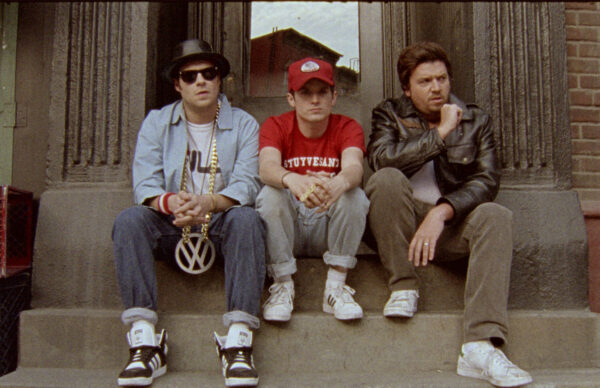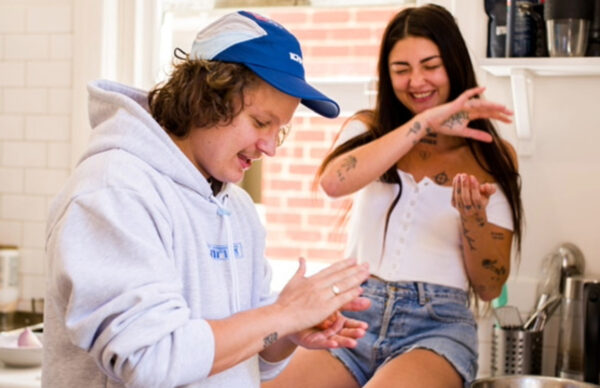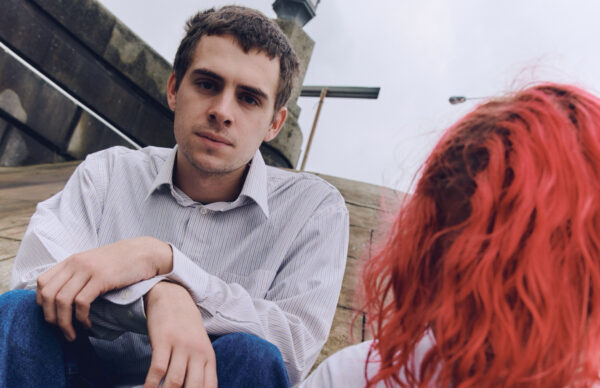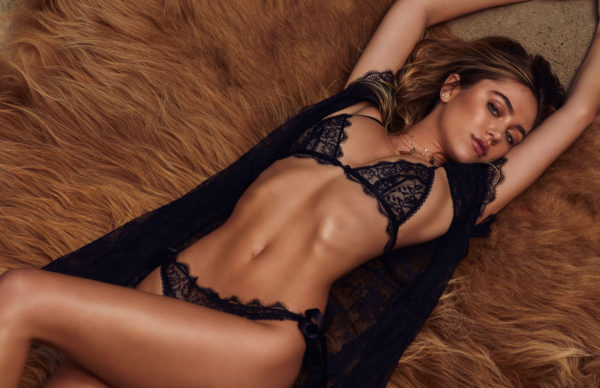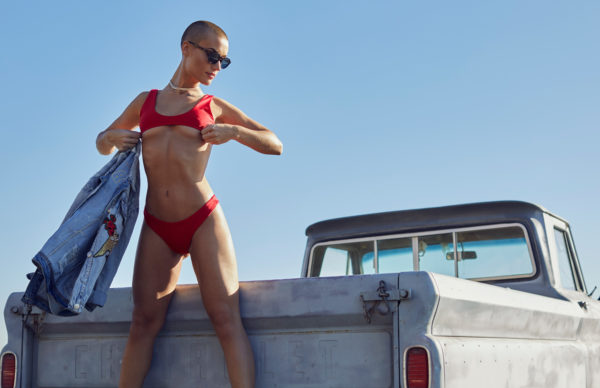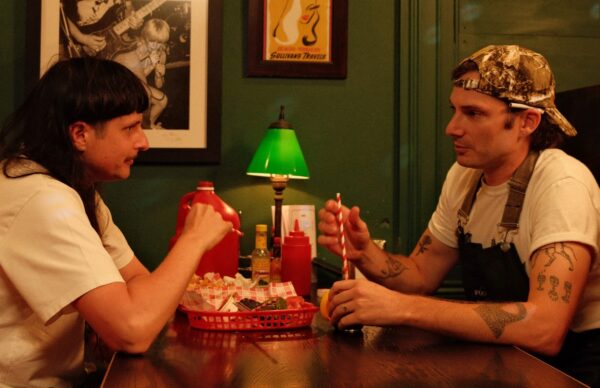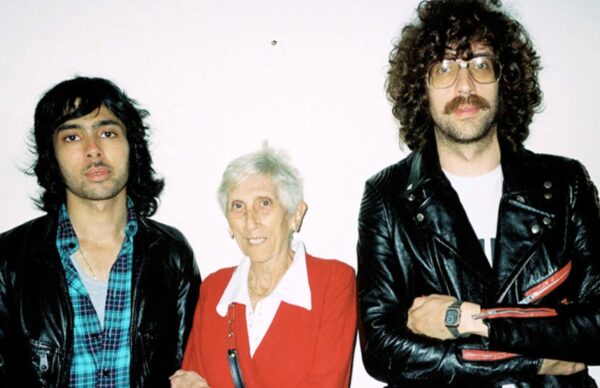Image by Richard Dumas //
Widely regarded one of the world’s best guitarists and a captivating performer, Tuareg musician Bombino took some time out to answer some questions about his introduction to guitar, his career and his latest album Deran.
When we got wind that Omar ‘Bombino’ Moctar would be heading back to Australia to tour his sixth studio album Deran at the end of the year, we jumped at the opportunity to interview the iconic artist. After all, it’s not every day you get the chance to put questions to someone who not only has a body of work that you regard highly, but has also reached the pinnacle of chart success in the world music category on four consecutive albums.
Growing up in the North African desert regions, displaced by the Tuareg Rebellion in the 90’s, he taught himself how to play guitar as a child, drawing influence from Tuareg musicians through to mainstream Western guitarists. This formed the basis for his musical identity that is part blues/rock, part reggae with Eastern melodies and rhythms.
https://www.youtube.com/watch?v=frw9WxTCEpU
With big names like The Rolling Stones, QOTSA, The Black Keys longtime admirers of his talent, it’s no wonder he is in hot demand as a performer worldwide, with audiences mesmerised by his ability to express himself through his guitar playing and his bands knack of finding the groove around it.
Bombino will be playing all around the country this November (info here), and check out our interview below:
https://www.youtube.com/watch?v=B9z17eZv5WA
Your guitar playing is often admired but near impossible to replicate. Can you tell us about when you started playing guitar?
B: I started playing guitar when I was ten years old, while I was a refugee in exile with my family, living in Algeria during the first Tuareg rebellion, around 1990. At this time I fell in love with the guitar. My elder cousin who was living with us had one, and so every day rather than going to school I would sneak away with the guitar and teach myself to play.
Who were some of your guitar heroes when you were growing up?
B: My guitar heroes were Jimi Hendrix, Carlos Santana, Mark Knopfler from Dire Straits, Ali Farka Toure and Ibrahim Ag Alhabib from Tinariwen.
Tell us how the desert and your surroundings have shaped the Bombino ‘sound’. For many people it is the sound of Sahara (even though they’ve never been there).
B: Yes, that is precisely it. Tuareg music is the music of the great Tenere (Sahara) desert. It is like the wind that moves the sand in the desert. We the people are just the grains of sand, moved around by the music. The desert of course is very vast, either very hot or very cold, and a very difficult place to live. It is also a profoundly beautiful place. This is why it inspires so much art, because it is powerful and beautiful and it defines what it is to be Tuareg.
Over the last decade or so, the world seems to be paying a lot of attention to the Tuareg sound. Why do you think it is becoming so popular globally?
B: I do not know, honestly. I have always thought that it should be more popular, because it is such powerful and joyful rock music. It should be popular with everyone, all over the world. The language of course is a barrier.
Are you ever surprised at distance your music has travelled?
B: Yes, sometimes I sit back and reflect on this. I feel very grateful to have had the opportunity to spread the music all over the world, quite literally.
Despite the language barrier, Bombino has a small but growing following in Australia. What is more important the music or the message in the lyrics? What comes first when you are writing music? The Lyrics or guitar?
B: For me the guitar usually comes first. A new song usually starts with a riff on the guitar, then the chords underneath it, then the vocal melody and finally the lyrics. However, sometimes it can happen in the reverse order, when I am inspired by a lyric or melody and the rest of the song comes together around this. But usually I write new songs by jamming on the guitar and seeing what interesting riffs come out. For me nothing is more important than the music.
Your albums seen chart success, received critical acclaim, and you’ve played to large crowds all over the world. How do you measure your success?
B: Well of course there are many ways to measure success. I do not really think of my success overall but rather the success of each show on its own. I will be very happy if I have a successful show, and an unsuccessful show will bother me, even if this makes little or no difference in my career.
How is Deran different Azel? How have you changed musically or otherwise?
B: No, it is just a continuation of the musical path I have been walking for years. Deran to me is just the next level of these styles my group and I have been working on for years on the road – Tuareggae, Tuareg rock and acoustic styles.
On Deran, you play mostly electric guitar, but there are some lovely acoustic moments on like ‘Midiwan’ and ‘Adouni Dagh’ how do you know when a song is going to be electric or acoustic?
B: Actually this is something that we discussed a lot in the studio when recording Deran, which would be acoustic and which would be electric. Usually if there is a slow or soft melody it suggests we should play the song in an acoustic style, but I often like to mix it up. I will play some of the acoustic songs on the Deran album as electric songs on tour these days, like Adouni Dagh for example. And for ‘Deran Deran Alkheir’ we were going to record it with electric guitars but then when we went into the studio we decided to use acoustic guitars. But usually, if I want something at a fast tempo I will want it on electric guitar and if it should be slower or softer I will play the acoustic.
You’ve toured Australia in the past, what are you looking forward to on when you come here?
B: I really love to tour Australia. The people are so friendly and the cities are beautiful. I also love the beaches. I hope I will get the chance to spend some time on the beach when I am there in November.
